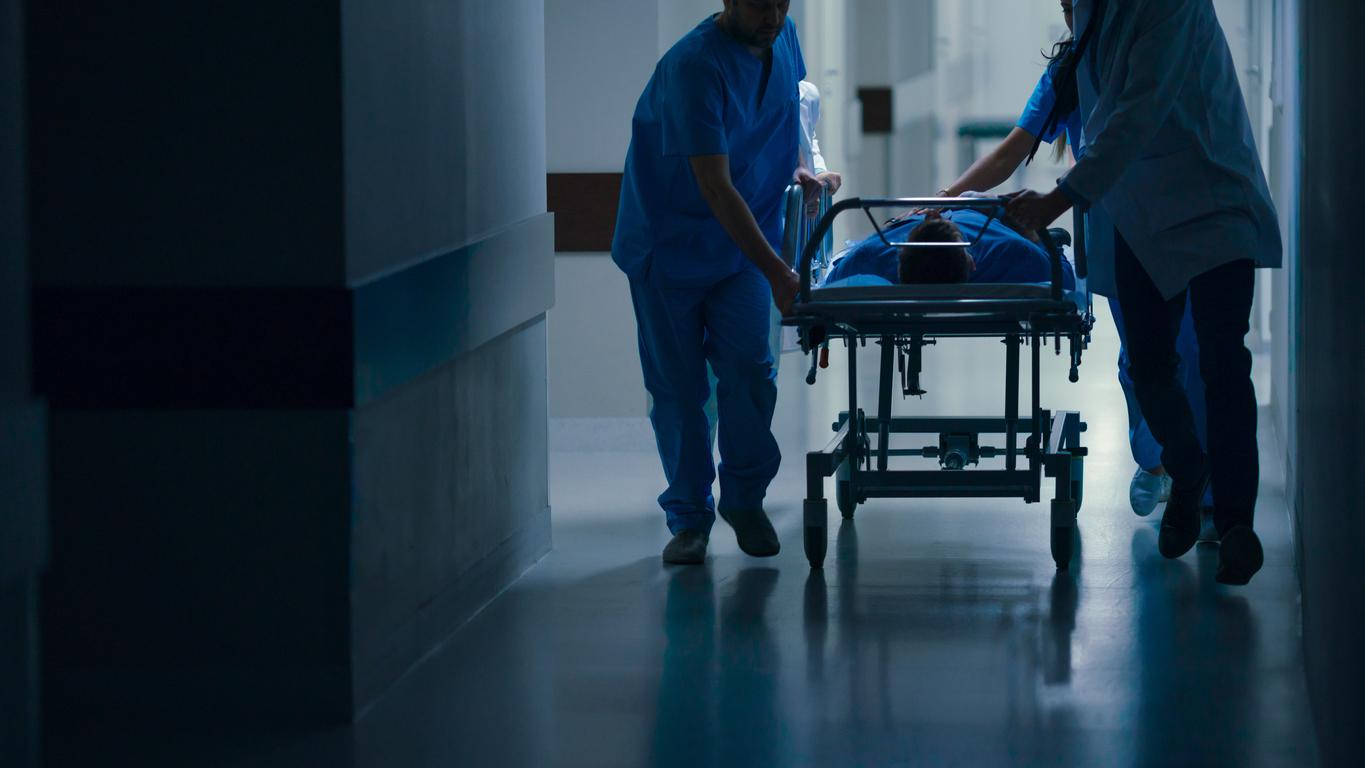Mathilde Bouychou supports many couples facing infertility. During the first confinement in March 2020, she continued her sessions at a distance and continued to support her patients, facing an additional difficulty in an already chaotic journey. “PMA attacks the couple, the individual, the relationship to the body. It is a medical intrusion into something very private. The announcement of confinement then reactivated very strong anxieties. It was therefore essential to give women a space to express what they were going through.”, she explains.
A brutally interrupted journey
Between March 17 and May 11, the triggering of the white plan, intended to reorganize hospitals to accommodate Covid-19 patients, resulted in the total closure of assisted reproduction centers, whose care was deemed “non-urgent”. “There was an effect of astonishment for these couples who, accustomed to being in the action, suddenly no longer had any prospects”, explains the psychologist. This interruption has reinforced the sense of urgency in which these couples find themselves, for whom the time factor is often crucial. Some women have thus seen their journey stopped dead in the middle of a protocol. “After weeks of hormone injection and a puncture, I was waiting for my embryo transfer when everything closed”, remembers Geraldine, in assisted reproduction for three years. “With my husband we were completely stunned. It was really one more injustice”, confides the 36-year-old young woman.
Mathilde Bouychou specifies that the moment of stopping in the course obviously played on the feelings of her patients. “Some women could not have the expected puncture, which means that the whole protocol had to be started again, still others had to be taken care of abroad and the closure of the borders made it impossible for them to travel.”, explains the psychologist. Difficult then to project oneself and to keep hope when the prospects are so gloomy. For Mathilde Bouychou, the goal was to help her patients regain internal security, while few things were reassuring in the outside world.
“The most difficult was above all this feeling of not being able to move forward”
Emilie (33 years old) and Jérôme (37 years old) learned at the beginning of March 2020, after almost two years of examinations and treatments, that they would have to resort to a sperm donation to become parents. “We were told that we had two options: adoption or donation of gametes. We chose the second option“, explains Émilie. The news falls as the whole world is gradually confined. But for the couple, these weeks spent with the family, far from Paris, were finally an opportunity to take precious time to reflect. “I have documented a lot on the subject. Even if we took turns having had difficult times, we had a pretty good time during this period ”,she adds.
At the end of April, the couple have a first two-hour video meeting with a clinic in Barcelona. “They prescribed a whole battery of exams for us but obviously at that time we did not have the possibility to do them. It is really an obstacle course that we do not see the end and this situation has been a new source of stress and worry.. The most difficult was above all this feeling of not being able to move forward”, she analyzes.
“Containment has changed the relationship to time. Patients worried about knowing when the centers would reopen and especially if they could be taken care of as soon as they reopened ”, explains the psychologist. With deconfinement, the centers were quickly overwhelmed. And if some doctors have anticipated and have been able to be reassuring by giving visibility to their patients, others have been overwhelmed. “The center in Spain told us we were going to be called quickly, but they never called”, explains Emilie. Followed for a year by two psychologists, Emilie and her husband have measured the importance of this support during this very special period. “Even though it was not easy to get conditioned from a distance, these psych dates were very important. Even if our situation did not change concretely, we made a lot of progress in terms of reflection, acceptance“, adds the young woman.
The containment raised fears of the worst
While many couples were able to resume their protocol over the summer, the pandemic has had catastrophic consequences for others. The assisted reproduction centers initially modified their protocols to adapt to the recommendations of the Haute Autorité de santé and excluded certain women with co-morbid factors (significant arterial hypertension, obesity, etc.) from the assisted reproduction during the period. Covid-19 epidemic. These conditions have since been relaxed and ART centers assess situations on a case-by-case basis.
But the announcement of the reconfinement by the President of the Republic Emmanuel Macron on October 28 raised fears of the worst. “I was afraid that everything would close again, the assisted reproduction centers, the borders”, says Emilie. Fortunately, the couple were able to make the trip to Spain to start a new protocol in mid-November. “We were allowed to travel for medical reasons but I still felt a bit like I was doing something forbidden, explains the young woman for whom the fear of contracting Covid-19 has become an obsession. We lived barricaded, I became a little obsessive with the mask, the hydroalcoholic gel. The clinic in Spain asked us to do a PCR test before leaving so I wanted to avoid being contaminated at all costs.”, she adds.
Thanks to Mathilde Bouychou, Clinical Psychologist-Psychotherapist, creator of Parenthood podcast
Also read:
- PMA: the Senate says no to single women
- Fall in the birth rate: babies born in 2021 are 13% less numerous than in 2020
- Egg and sperm donations remain insufficient in France
















